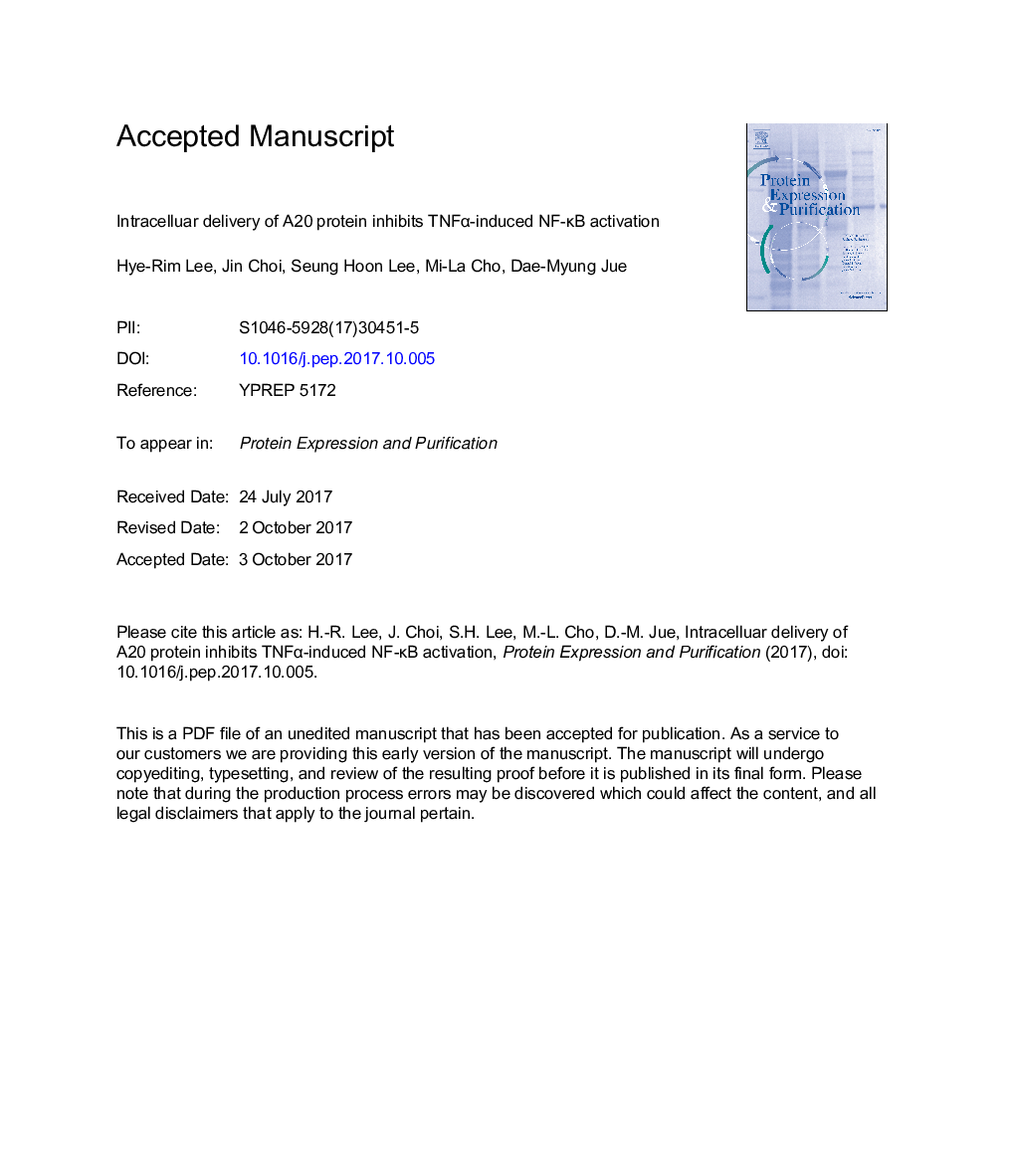| Article ID | Journal | Published Year | Pages | File Type |
|---|---|---|---|---|
| 8359587 | Protein Expression and Purification | 2018 | 29 Pages |
Abstract
A20 (also known as TNFAIP3) is a potent anti-inflammatory protein that suppresses many intracellular signaling pathways induced by inflammatory cytokines and bacterial and viral pathogens. The anti-inflammatory function of A20 depends on its modulation of or binding to polyubiquitin chains on key signaling proteins in the nuclear factor-κB (NF-κB) pathway. To test whether A20 can be used as therapeutic agent in these inflammatory diseases, we prepared a recombinant cell-penetrating form of A20 (TAT-A20) for intracellular delivery and examined its effect on tumor necrosis factor-α (TNFα)-induced NF-κB activation. We observed that TAT-A20 was effectively transduced into cells within 30 min, whereas A20 protein without TAT motive was not. TAT-A20 also inhibited NF-κB induction in fibroblasts stimulated with TNFα. These results suggest that increasing intracellular level of A20 can be an effective means to suppress NF-κB activation and treat inflammatory diseases.
Keywords
Trans-activator of transcriptionPBSTNFαZNFFITCSECTNFAIP3IPTGDTTIκBNF-κBGAPDHOTUinflammationsodium dodecyl sulfate-polyacrylamide gel electrophoresisSDS-PAGEZinc fingerisopropyl β-D-1-thiogalactopyranosideTATIntracellular deliveryOvarian tumortumor necrosis factor-αdithiothreitolnuclear factor-κBfluorescein isothiocyanatePhosphate-buffered salineinhibitor of NF-κBpolymerase chain reactionPCRHIV-1human immunodeficiency virus 1RIPReceptor interacting proteinSize exclusion chromatographyglyceraldehyde 3-phosphate dehydrogenase
Related Topics
Life Sciences
Biochemistry, Genetics and Molecular Biology
Biochemistry
Authors
Hye-Rim Lee, Jin Choi, Seung Hoon Lee, Mi-La Cho, Dae-Myung Jue,
